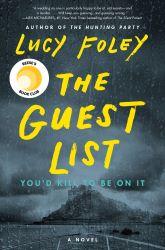
Hidden motives, secrets, and lies are the backbone of Lucy Foley’s thriller, The Guest List, and did I mention drama? From the moment you open the book, drama spills out, but in a good way. The characters are the point of the book. Their problems its lifeblood. The Guest List is not solely about the murder but all the threads connecting the cast of characters to one another in some elusive way. And the mystery is cleverly interwoven with all the lies and personal issues, so you won’t know who did it until the end. Even if you do figure it out, the characters have so much more to offer than just their motive. Foley creates characters you will hate, pity, and love. Totally recommend.
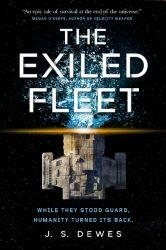
This is the sequel to Dewes' "The Last Watch". This book unfortunately no longer has the same antagonist. That conflict was resolved in the first book, so my favorite part of the last book is no longer a factor. This is not, however, the reason that I only gave this book a 4/5. I did not enjoy the content overload provided in "The Exiled Fleet". I enjoyed the increase in character development, but it lead to simply too much information. This also led to situations that only felt like they were there to develop one character before being cast aside. An example would be the airlock situation between Rake and Snyder. It felt really good to conclude the relationship between Cavalon and Snyder, but I wish there was more with Snyder before the entire book shoved more information and content about the next biggest thing. The content overload was my least favorite part of this book. My favorite part was, ironically, the character development. Rake dealing with trauma over Griffith, Cavalon's relationship with his grandfather, and the surge of sudden Jackin development. It's difficult to explain how my least and most favorite parts of "The Exiled Fleet" were the same, but it makes sense when the book is read.
Reviewer Grade: 11
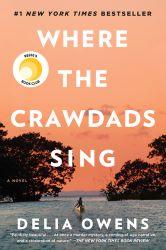
Where the Crawdads Sing, written by Delia Owens, detail the fictional account of Kya and her survival in the marsh of North Carolina. After her mother is beat one too many times by her father, Kya's mother leaves, leaving Kya to fend for herself - against her abusive dad and the wilderness. Kya learns the value of self-reliance, she falls in love with the marsh and its functions and importance to the ecosystem. She also, however, feels the urge of having human company, and her adventures of falling in love (and back out) are incredibly detailed and heart wrenching. My favorite part about this book was the imagery; the way simple things, like leaves falling off of a tree, were described it felt as if I was standing right next to Kya, watching the leaves fall with her.
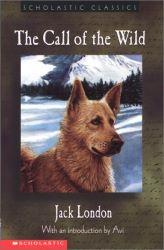
"The Call of the Wild," written by Jack London, is a novel set in Yukon, Canada during the Klondike Gold Rush. Buck, a rather large, domesticated dog, is stolen from his comfortable life and sold into the brutal world of sled dog teams in the harsh wilderness. Buck quickly learns to adapt to his new environment, tapping into his primal instincts as he navigates the challenges of survival. He forms a bond with John Thornton, a kind-hearted prospector, but Buck never feels free, and he contemplates breaking his friendship with John Thornton to escape into the wild. I enjoyed the book because I am an animal lover and I liked reading about the events that Buck endured. Subsequently, I would recommend this book to animal lovers because, after all, it is about a dog and his strive for freedom.
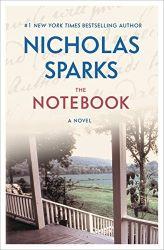
"The Notebook", by Nicolas Sparks, is a fictional love story about Noah Calhoun and Allie Hamilton. They are each other's first love, but societal pressures and World War II separate them, leading Allie to become engaged to another man. Allie, before getting married, visits Noah to see if she is making the right choice. However, she soon realizes that she never stopped loving Noah and becomes torn over Noah and her fiance. I enjoyed the book, however, sometimes the conversations seemed forced and stereotypical. I would, however, recommend this book to anyone who enjoys a good love story
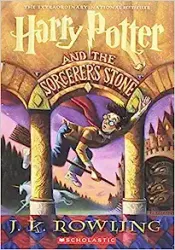
Harry Potter was an incredibly amusing read, with amiable characters that truly made the story stand out. This novel is a must-read for people of all ages. It has an air of mystery, is captivating, and provides entertainment. The book portrays real-world events in a fantasy world.
The characters, including the main character Harry Potter, are relatable and undergo character development while making mistakes. One of the great features of the novel is how each character has their own unique strengths and weaknesses, and each one has a distinct way of feeling. For instance, Neville Longbottom is a shy boy, but his loyalty to his friends and his house team is unwavering.
Harry Potter is a book that can be enjoyed by all ages, as it accurately portrays the struggles that come with different stages of life. Even though Harry is a wizard, his teenage problems are relatable to those of a typical teenager. As a reader, you can judge the characters in the book based on the tone of the novel. Relationships are also a significant feature of this novel and are portrayed differently depending on the type of relationship. For example, the relationship between a sibling and a friend is distinct but can be differentiated only by the tone or mood portrayed accurately.
This book is an absolutely enchanting experience, overflowing with captivating magical creatures, spells, and enchantments that will undoubtedly keep readers completely engaged. The characters are exceptionally well-crafted and relatable, while the plot moves at a fast pace, leaving the reader on the edge of their seat.
The author's vivid and immersive writing style transports readers into the heart of the story, allowing them to experience it as if it were their own. At Hogwarts, Harry befriends Ron Weasley and Hermione Granger. The trio works together to unravel the mystery surrounding the Sorcerer's Stone. In their quest to counter Voldemort's plan to use the stone to regain his body, Harry and his friends embark on a perilous adventure.
Overall, Harry Potter and the Sorcerer’s Stone is a timeless classic that continues to interest and entertain readers of all ages. It is a must-read for anyone who loves fantasy, adventure, and magic. I highly recommend this book to anyone who hasn’t read it yet.
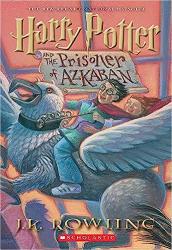
Harry Potter and the Prisoner of Azkaban is the third book in the Harry Potter series. This book is a must read if you enjoyed the previous two books.
Harry Potter, a wizard going into his third year at Hogwarts School of Witchcraft and Wizardry, has a connection to the escaped serial killer, Sirius Black. Black now is thought to be trying to murder Harry Potter on behalf of Voldemort. Dementors are sent to the campus of Hogwarts in order to keep students safe from Black. Hermione is juggling taking 12 classes and being busier than ever. Her cat is set on killing Ron's sick rat creating tension in the trio. Professor Lupin, the new Defense Against the Dark Arts teacher, helps Harry cope with the awful affect the dementors seem to have on him. Meanwhile, Harry tries to discover the tie between Black and himself.
I read this book because I was a fan of the previous two books in the series. The characters and setting in this book make it easy to fall in love with. The author uses imagery to make it feel as if you are really there with the characters. This made the book an absolute blast to read. The ending tied everything together and prevented loopholes in the plot. I disliked the ending in the regard that Harry didn't get his happily ever after.
Harry Potter and the Prisoner of Azkaban is the third book in the Harry Potter series. This book is a must read if you enjoyed the previous two books.
Harry Potter, a wizard going into his third year at Hogwarts School of Witchcraft and Wizardry, has a connection to the escaped serial killer, Sirius Black. Black now is thought to be trying to murder Harry Potter on behalf of Voldemort. Dementors are sent to the campus of Hogwarts in order to keep students safe from Black. Hermione is juggling taking 12 classes and being busier than ever. Her cat is set on killing Ron's sick rat creating tension in the trio. Professor Lupin, the new Defense Against the Dark Arts teacher, helps Harry cope with the awful affect the dementors seem to have on him. Meanwhile, Harry tries to discover the tie between Black and himself.
I read this book because I was a fan of the previous two books in the series. The characters and setting in this book make it easy to fall in love with. The author uses imagery to make it feel as if you are really there with the characters. This made the book an absolute blast to read. The ending tied everything together and prevented loopholes in the plot. I disliked the ending in the regard that Harry didn't get his happily ever after.
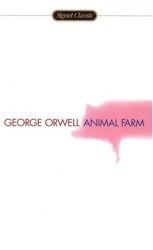
Animal Farm is a book where animals on a farm represent the Russian Revolution. The animals rebel against the farmers to try and escape cruelty and be free. But, it doesn't end up going as planned, and things start to go wrong on the farm. I thought that this book was very educational and it was interesting to see how people, who were represented by the animals, can change so fast. I would recommend this book to anyone who has an interest in history and the Russian Revolution.
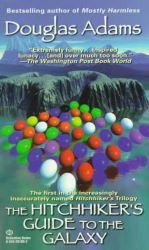
A Hitchhikers Guide to the Galaxy was a funny but interesting book. The book is about aliens destroying Earth to make way for an intergalactic bypass, and it follows a few characters trying to survive the universe that they've been put into. There were also many comedic moments, including strange things that the characters need in order to survive and be safe out in the galaxy, such as a towel, which is really important. The only thing I didn't really like about this book was that it was really difficult to understand at times. There were lots of confusing moments and new things just kept coming. But at the end of the book most of it started to make sense. Overall I thought this book was a great read if you like humor and are interested in space.
Reviewer Grade: 8
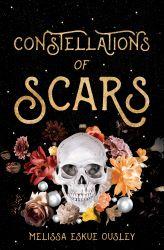
This is definitely an eventful book. "Constellations of Scars" follows Amelia Weaver. For unexplained reasons, she grows pearls on her skin every month. Her mother keeps her shut inside the house, restricting her freedom. One day she decides to escape and try her hand at the real world. She ends up working for a freak show, though they are unaware of her own oddity.
Let's start with the characters. Amelia herself is perfectly acceptable. She doesn't have any noteworthy character traits, or anything to help her stand out besides the whole pearl thing. However, her motivation is clearly defined and all of her choices make sense. Gabe is probably the best character in the book. His backstory is interesting, and his somewhat reclusive demeanor is off putting without being unlikeable. Unfortunately, most of his character development happens within ten pages. Peter is... interesting. I'll talk about him in the spoilers section.
The best part about this book is the writing. It keeps the reader engaged the whole way through. While the descriptions are detailed, the author does not dwell on them long enough to bore the reader. One interesting thing about this book is the chapter length. While there are long chapters, there are also chapters that only last a few pages. I found that this kept the story at a fast pace, further keeping me involved.
The plot is the main failing of the book. Spoilers from here on out. It starts off strong, setting up themes of isolation and hiding. Several conflicts were set up, most notably Amelia's mother and the possibility of the world finding out about her secret. However, all of these conflicts are suddenly solved halfway through the book. From that point on, it shifts to a thriller about Peter secretly being a serial killer. I'm not kidding. There are hints that Peter isn't as nice as he appears, so it doesn't come out of nowhere. However, it drastically shifts the course of the story, to the point where it feels like two separate stories.
Despite this criticism, this wasn't a bad book. I enjoyed myself while reading it. Furthermore, it's a quick read (perfect for car trips or bedtime). If you're looking for an engaging story with twists and turns, this is for you. If you're looking for a cohesive story with interesting themes, this book isn't for you.
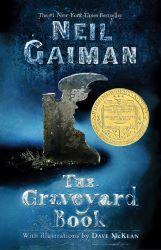
The Graveyard Book, written by Neil Gaiman, is a mystical, interesting book. In the book, a young boy is taken in and cared for by ghosts of a graveyard. The boy is kept in secret, and is named Bod, short for Nobody. The book follows Bod's adventures in growing up and continuing his life, in and out of the graveyard. I thought this was a great book, packed full of magic special characters. I would definitely recommend this book to anyone, but mostly a more mature audience, because there are some parts that I feel are harder to understand if you are younger, and at some parts the book is a little slow. But overall I think this was one of the best books I've read this year!
Reviewer Grade: 8
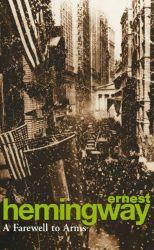
A Farewell to Arms, written by Ernest Hemingway, details the account of Frederic Henry, a medic for the Italian army during the Italian campaign of World War One. He is sent to the front lines of the war, and while he is eating dinner, a bomb explodes over him and he is injured. During his recovery process, he falls in love with Cathrine Barkley, an English nurse. Henry soon desires to leave the army and will do so in any means possible so that he can escape and be with his Ms. Barkley. I enjoyed the book because it was quite satirical, except the humor was quite advanced, so I would recommend this book to teenagers and adults. Overall, however, it was grammatically unique and I believe that I have become not only a better reader from reading this book, but a better writer as well.
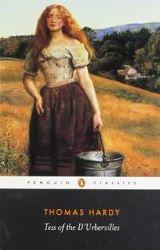
WARNING: This reveiw and this book contains discussion of sexual assult.
Tess of the D'urbervilles is an excellent book. It tells the story of Tess Durbyville, who's father has become obessed with the idea of their noble heritage. After an incident with the carriage, the family is left in financial peril. Tess agrees to work for her supposed relations. However, this leads her into the arms of Alexander D'urberville (who is not actually related to her).
Tess herself is a great protagonist. She's well defined as a dreamer who is devoted to her family. Both of these traits help her, but cost her dearly. Alexander is a more complex antagonist than you'd first assume, while still being hatable. Angel Clare is a good character as well, he has well defined traits, but I was not able to end up liking him. He admits to not being a Christian, and not believing in all of the doctrines of the Bible (just to clarify, almost all of today's Christians would take issue with the way Angel treats Tess). Furthermore, he openly admits to his parents that he does not have the same beliefs he does. Yet, he still abandons Tess because of these beliefs (that he doesn't have).
That brings me to the major problem. Tess is constantly thinking about how Alexander is her true husband, and how she is ruined. While these are realistic things for someone in her predicament to think, I felt that the book does not take a strong enough stance against these beliefs. If it wasn't for this, I would have given the book 5 stars (if I had the option, I would have given it 4.5). Tess of the D'urbervilles has excellent prose, shocking twists, tragic moments, and great character progression. If you are not uncomfortable reading about sexual assault and you enjoy classic literature, I would recommend this book.
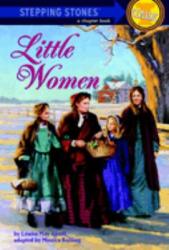
This is a classic book about four sisters who are growing up during the civil war era. Their beloved father is off fighting in the war while the girls and their mother, who everyone lovingly calls "Marmee", tend to life back home. The girls befriend the neighbor boy, Laurie, who they view and treat as their brother. Throughout the story, you follow the journey of the family's lives, mostly tomboy Jo's, from the comfort of their childhood home to each of the girls eventually creating a home of their own.
I think what makes this story one of my favorites is the fact that even though it's a classic, it's one that is easy to follow along with. This is actually the only classic I've read through twice. The characters develop amazingly throughout the story and you really feel like you know the characters well by the last page. This is an amazing book that truly takes you on the journey of the story rather than trying to keep you in suspense the entire time. This book definitely helped me to learn to take my time while reading a book and to allow the story to develop rather than jumping ahead and trying to rush the book. I don't usually like romance books, but I did like this book because when it came to the small parts that dealt with romance, the girls were always encouraged by their Marmee to marry for love rather than for money, wealth or status. This is a theme that is upheld throughout the book and one I think makes this book an enduring classic through generation after generation.
I would recommend this book for anyone looking for a classic that has a fun story, easier to understand language and lovable characters.
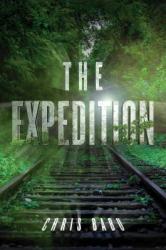
The second book in the Initiation series, we get to see more of the world. As the characters move farther out, they see that the leaders of New America have lied about the state of the world. As the protagonists go on through their journey, they start to uncover more and more secrets that New America has decided to bury. Though they are not left alone on their quest as New America has left them with four highly trained soldiers, supposedly to defend them from any danger. Tensions continue to grow between the Guardians and Draydens group, and both sides start to grapple for control, eventually splitting off. Both sides become contenders to finish the pursuit for supplies and tell their side first to New America.
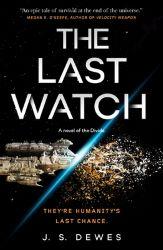
This is Dewes' fantastic debut novel about space, politics, and unknowable existence-ending eternal temporal torment. In fact, that last detail is my favorite part about the book. Not only is it an extremely interesting and unique concept for an antagonist, it is also a great antagonist. It is something that can be understood by the reader, but can't reasonably be understood by the reader. It in itself is a paradox that works as possibly my favorite antagonist this year. Again, it is simply the greatest unique idea I have read in a long time. I picked this book because I also loved Dewes' novel "Rubicon", so I looked for more books by the author. I honestly can't pinpoint a criticism that I have with this book. This book had just enough surprises where I was absolutely entertained, but I could still keep track of what was happening and which characters stood for what. I could relate to Adequin in her feeling of being inadequate (and actually being inadequate) for her assigned position. This book is a strong contender for being the greatest book that I have read this year.
Reviewer Grade: 11
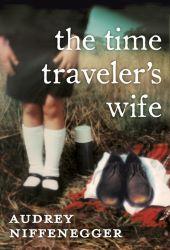
"The Time Traveler's Wife", written by Audrey Niffenegger, is the fictional account of Henry DeTamble, a man with a unique genetic condition that causes him to involuntarily time travel, and his wife Clare Abshire. The narrative follows their love story as they navigate the challenges posed by Henry's sporadic disappearances and unpredictable reappearances at various points in time. I really enjoyed how the plots all came together; while Clare aged normally, she would see Henry at different stages of his life. For example, when Henry time travels, he sees Clare when she is 13 and when he is 35. Another time Henry was 28 whilst Clare was 20. Clare's development was linear, while Henry's was sporadic. I would recommend this book to adults who enjoy a good love story. However, there is some adult content in the book so I would not recommend it for children or teenagers.
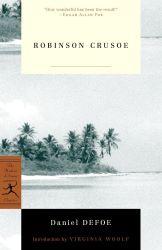
"Robinson Crusoe" is a fictional novel by Daniel Defoe; telling the story of Robinson Crusoe, a young Englishman who becomes stranded on a deserted island after a shipwreck. The novel follows his solitary existence as he learns to survive, building shelter, finding food, and adapting to the challenges of his new environment. Over the years, Crusoe encounters both moments of despair and triumph, offering readers a captivating tale of resilience, self-reliance, and the indomitable human spirit. I was fascinated by this book; if I were to compare it to another book I would say that it is the grown up version of Hatchet (written by Gary Paulsen). I would recommend this book to anyone who enjoys a good adventure novel.
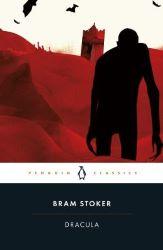
Dracula, written by Bram Stoker, is a fictional account of a vampire hunt in Transylvania. Jonathan Harker, a lawyer, is sent by his boss to Castle Dracula to assist in a real estate transaction with a wealthy man named Count Dracula. However, he is soon not allowed out of the castle, and slowly he realizes the the Count is no ordinary man. Harker manages to escape and eventually teams up with a colleague to hunt down Count Dracula. I enjoyed the book, it was full of complex back stories that merged into one beautiful crescendo: the hunt of the Count. I would recommend this book to anyone wanting to expand their vocabulary, as the book is rich with complex words and sentences. I would also recommend this book to avid readers; (as it is a classic) it should be ensured that to be a genuine reader one must read this famous work of art.
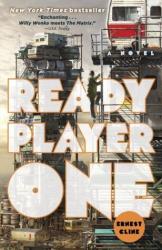
Ready Player One is an amazing Sci-Fi book with the protagonist being Wade Watts. The Year is 2045 and us humans have used almost all of our fossil fuel and are keeping worse care of our planet. Thankfully technology has further developed and there is a Virtual reality called the OASIS (Ontologically Anthropocentric Sensory Immersive Simulation) created by James Halliday. The OASIS is accessible to anyone in the world, aside from the wondrous video game aspect from it there is an entire school system embedded in the code. Although Halliday died in 2040 his legacy lived on. Halliday created a challenge for any OASIS users, before he died he proposed a contest. Halliday hid secrets within the code and if you could figure them out you could inherit his fortune (half of a trillion dollars) along with control of the OASIS itself. Even after 5 years though no one had come even close to solving his riddle,
“The Copper Key awaits explorers
In a tomb filled with horrors
But you have much to learn
If you hope to earn
A place among the high scorers” (Ernest Cline, Ready Player One)
But one day, Wade was attending school and it hit him like a monster truck he knew how to solve the riddle.
Ready Player One is a truly fascinating novel. I would recommend it to anyone 14+. If you have an interest in highly developed characters, a futuristic dystopian world, 1980’s pop culture, and video games this will be a book that’s hard to put down. Wade Watts is of course the most advanced character since he is the main protagonist. Ernest does a wonderful job at explaining Wade’s backstory and how it is affecting him in the present. And the way that the world is now so messed up in the book and how Ernest depicted how it would be is amazing. Wade lives in a place called the stacks, an old field that has multiple RVs stacked on top of each other. Also people who were born in the late 1960’s or early 1970’s will get a kick as they remember their teen years in the 1980’s and understand the references. And of course if you love video games you will hear yourself cheering on Wade as he has to defeat bosses and figure out the riddles. Overall, I think that Ready Player One should be a book that most teens and young adults should read because I genuinely think that you will love this book as much as I did.
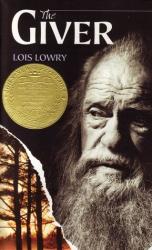
This story follows the main perspective of Jonas. Jonas lives in an alleged utopian society. They feel no pain, see no colors, feel no love, and hear no music. At the age of 12 every child is given an assignment based on their abilities and what they excel in. Jonas was living a perfect life until his cycle was broken. When Jonas turned 12 he was decided to be the receiver of memory, the highest role in the community. Now everything that Jonas once thought was true and right all come crashing down leaving him with a reality of the community that he can no longer stand for.
The giver is an amazing book full of surprising twists and just a spectacular over all plot. Lois Lowry did an excellent job of not only creating a completely fascinating story, but also leaving you wondering once you finish the read. A main theme of the giver could be the significance of memories to all life. The giver is a dystopian novel as the citizens are living in an extremely censored version of life. I did not particularly enjoy some of the more disturbing memories of death and war that Jonas receives but it is important that they are present so that Jonas will make the final decision. The giver is an amazing book that all would enjoy!
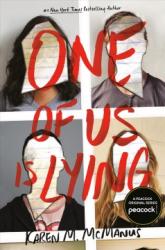
It's a good book.
"A Study In Charlotte" follows Jamie Watson and Charlotte Holmes, the descendents of the famed duo themselves. While the Watsons have lived relatively normal lives, the Holmes have kept up their prestigious reputation and penchant for mysteries. Jamie has been wishing for a friendship with Charlotte all his life, which makes it all the worse when they start off on a bad first impression. However, when the both of them become suspects in a murder, they have to work together to find the real culprit. Along the way they form a touching friendship that might be leading to something more.
Before I continue, this book features a main character who has been sexually assaulted. If this is a trigger for you, do not read this book.
The highlight of this book is the relationship between Jamie and Charlotte. It's built up naturally and is extremely heartwarming. It does fall into a common trap of romance books though, in that I didn't really care about any of their other connections. The mystery is perfectly serviceable, though nothing standout. The humor in this book is above average, especially in regards to Charlotte's eccentricities and Jamie's reactions. The way they handled the Holmes mythos was similarly interesting, though not mind blowing in any capacity.
Overall this is a solid read with some standout elements that I would definitely recommend.
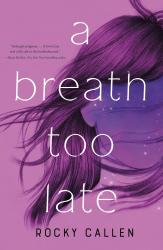
Through the eyes of a soul who hasn't left for an afterlife or complete darkness, Ellie Walker traces the days before her suicide, the day of her suicide, and the more indelible days that built her person and childhood. Chapters are written as epistolary entries, which the intended recipients—Momma, Father August, Life, and Dreams—will never get to read, as it was suppressed beneath the devastating end of a soul that didn't speak all truths while alive. She awoke with her mind, dazed and chipped of fundamental segments—abuse, friendship, love, the love of a mother, an advancing future, and more—that once conjoined her memories with coherence. The lament after death was her hand on the clock that struck a new hour as she accepted time's shadow that crept over her and swallowed, despite any interjections she could only attempt to make. Too late, Ellie Walker meandered through the gallery of her memories and realized all they meant to her and all she could become from them.
Anna, 10th Grade
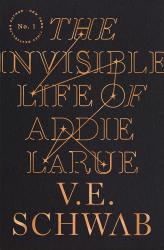
The Invisible Life of Addie LaRue is about a French girl who did not want to get married and prayed to a dangerous higher being made a deal. The deal makes Addie cursed to live until she gets tired of living and not being able to remember as she lives. Throughout the novel Addie is alone for 300 years her only company this higher being who enjoys to mock her. Finally after 300 years someone remembers her.
The novel is written in a bit of a slow pace, but it slowly builds up as it goes on. The novel switches between the past of characters lives and the present. The ending is a little surprising. The book is worth the read.
Reviewer Grade: 9
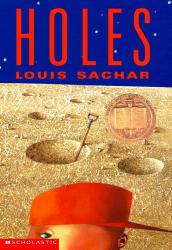
Holes by Louis Sachar is a piece of young adult fiction that weaves together elements of mystery, adventure, and coming-of-age themes. The novel's plot centers around Stanley Yelnats, a young boy who is sent to a juvenile detention camp after being falsely accused of stealing a pair of shoes. At Camp Green Lake, Stanley is forced to dig holes in the desert as part of a rehabilitation program, leading him to uncover a mystery that has haunted the camp for generations. Sachar's portrayal of Stanley and the other boys at Camp Green Lake is one of the novel's strongest qualities. Through their interactions and experiences, Sachar explores themes of friendship, loyalty, and the importance of perseverance in the face of adversity. Stanley's transformation from a timid and isolated boy to a confident and capable young man is both inspiring and heartwarming. This novel is very appealing due to is humor, unexpected backstory, and suspense that kept me hooked throughout. The novel's themes of friendship, perseverance, and the importance of doing what is right resonate with readers of all ages and make it a true gem of young adult literature, I'd recommend it to all!
Reviewer Grade: 11.
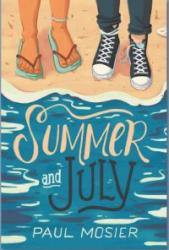
"Summer and July" by Paul Moiser is a warm novel about a girl named Juliet. Juliet's mother is a nurse who has to travel to California for the summer. Juliet is very upset about the move because she did not want to leave her best-friend Fern. Then Juliet meets Summer, a local surfer girl. Summer helps her adjust to the new surrounding, (which is very hard due to her mental illness). She faces her struggles with her new positive companion. When Summer reveals her own pains, Juliet must now be the one to help Summer overcome them.
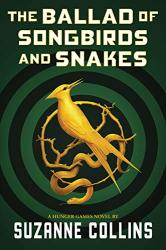
If you have read the Hunger Games series, then you know that President Snow is the main villain and set a iron grip on the Districts of Panem. I you haven't read the trilogy, then might I highly suggest you do.
This book takes place decades before the trilogy starts and we read through Coriolanus Snow's eyes before he becomes the president and monster of Panem. Coriolanus has already set himself up to be in a position of power even as a young adult, and after his city was besieged, and his parents died, the Snow name and fortune left in ruins. Coriolanus Snow has decided that he will never be the weaker side again. The Hunger Games were not a new event for Panem during the time yet they were never popular, now though Coriolanus and his class are each assigned a tribute to make the Games finally noticed. Coriolanus has been assigned the girl of District 12, perhaps the worst choice available, or so he thinks.
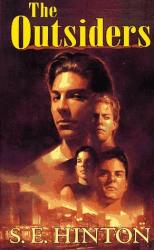
The Outsiders by S. E. Hinton is a timeless classic that explores the lives of teenage boys growing up in a society divided by socioeconomic class. The novel's plot centers around Ponyboy, a member of a gang known as the "greasers," who are constantly at odds with the wealthier "Socs." When Ponyboy's best friend Johnny kills a Soc in self-defense, the gang is forced to go on the run, leading to a series of events that force Ponyboy to confront the harsh realities of his world. Hinton's portrayal of Ponyboy and the other greasers is one of the novel's greatest strengths. Through Ponyboy's eyes, we see the struggles and challenges of growing up in poverty, dealing with absent parents, and trying to find a place in a world that seems to be against you. The characters are all fully developed and unique, each with their own backstory, motivations, and distinct personalities, adding depth and complexity to the story. Hinton's portrayal of the greasers' bond highlights the importance of having a support system, even in the face of adversity. Additionally, the novel explores themes of social inequality, prejudice, and the challenges of coming of age in a world that is often unfair and unjust. I really enjoyed the authenticity of this novel through the abundance of dialogue and interactions between characters. I highly recommend this book as The Outsiders resonates with readers of all ages.
Reviewer Grade: 11.